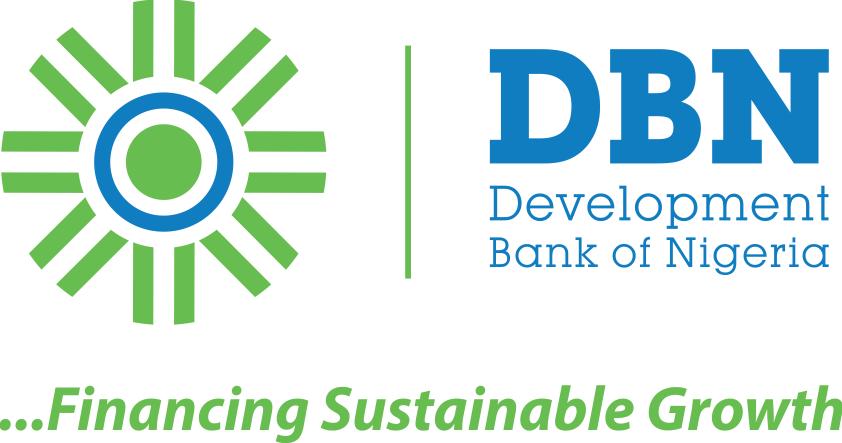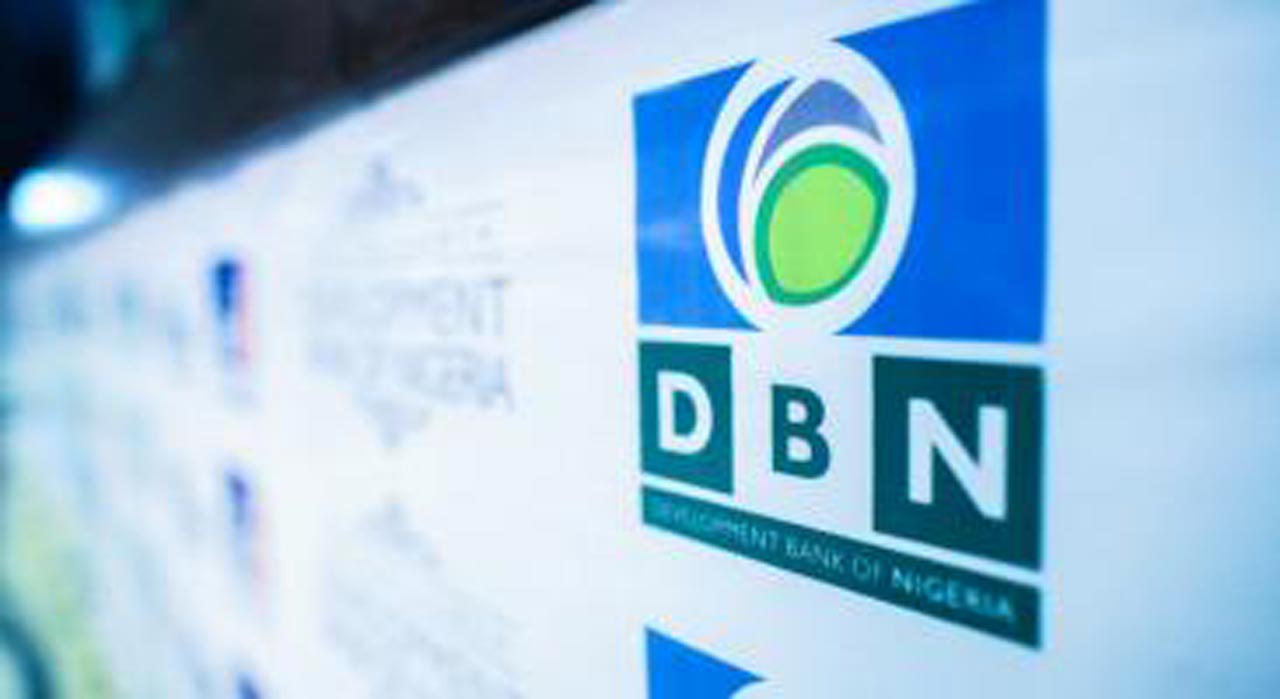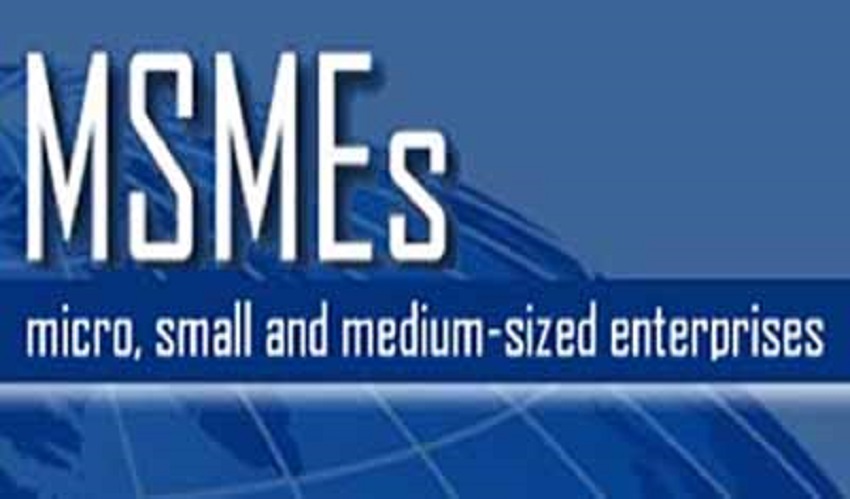Banking
DBN Introduces Products for Financing MSMEs

By Aduragbemi Omiyale
Three new products aimed to provide the much-needed access to financing window to micro, small and medium scale enterprises (MSMEs) in Nigeria through participating financial institutions (PFIs) have been introduced by the Development Bank of Nigeria (DBN).
The merchandises launched by the federal government’s development banking institution are the DBN finance to finance (F2F) product, the DBN non-interest banking product and the DBN long-term product.
All these products are meant to cover all aspects of the MSMEs sector irrespective of location, industry or business cycle. They are, however, meant for those MSMEs with less than 250 employees, an asset base of less than N1.125 billion and an annual turnover of less than N950 million.
A statement made available to Business Post disclosed that the maximum loan size disbursable to any of the qualifying MSMEs is N200 million.
The lender explained that the DBN F2F is specially designed for financial institutions (FIs) that lend to MSMEs through the likes of microfinance banks, microfinance institutions, financial NGOs, cooperatives, fintech companies and other non-bank financial institutions.
Through this product, which has a tenor of up to seven years, the DBN makes funds available to FIs who are unable to receive funding directly from DBN to disburse to their MSME customers.
This way, the DBN is able to expand its reach to the MSMEs. The FIs who will qualify for this product would be expected to have active MSME portfolios and demonstrate a commitment to lend the funds to the target MSMEs.
For the DBN non-interest banking product, it was developed for applicable PFIs for on-lending to their MSME customers under the non-interest banking window.
The fund, which is in support of the PFIs’ funding to their MSME customers, is a demonstration of the DBN’s commitment to increasing the availability of its funding to all MSMEs across the country.
The product, which is also aimed at promoting financial inclusion in the country, is available to all non-interest banks as well as other financial institutions who have non-interest banking products and wish to utilize DBN funds to deploy non-interest banking loans to their MSME customers for a tenor of up to five years.
The third product, according to the statement, is a loan product provided to PFIs to support their long-term lending to MSMEs for a period of up to 10 years.
The structure of the fund is flexible and can be easily adapted to suit the PFIs’ peculiar needs and finance structure.
Any PFI can request for this facility to cater for the long-term finance needs of its MSME customers where there are tenor mismatches between available funding and customers funding requirements.
The DBN noted that it expects these products to further address the existing access to finance challenges facing MSMEs in the country, which has been exacerbated by the effects of the coronavirus disease (COVID-19) pandemic.
Prior to the outbreak of the COVID-19 pandemic, the funding gap in the MSMEs sector in Nigeria was a whopping N48 trillion, according to the Governor of Central Bank of Nigeria (CBN), Mr Godwin Emefiele and this spurred the DBN to look for ways to bridge this gap in line with its strategic mandate.
These products could not have come at a better time when both the global and local economies have been battered by the effects of the COVID-19 pandemic. Nigeria, just like other countries of the world, has had its fair share of the pandemic and its effects, leading the country into a bad economic depression – the worst since the 1980s and the second since 2015.
The lockdown led to the closure of many businesses, mostly the micro, small and medium-scale enterprises (MSMEs), in the country. Those who survived or surviving are struggling to get on their feet once again as they are besieged with challenges of access to finance.
The DBN, which commenced operations in 2017, has between 2018 and 2020, disbursed N323 billion to over 136,000 MSMEs across the six geopolitical zones of the country through the PFIs.
With the creation of these products, the Bank is poised to increase its impact on the operations of the MSMEs in Nigeria.
Banking
Recapitalisation: 20 Nigerian Banks Now Fully Compliant—Cardoso

By Adedapo Adesanya
The Governor of the Central Bank of Nigeria (CBN), Mr Yemi Cardoso, announced on Tuesday that the country’s banking sector is making strong progress in the recapitalisation drive, with 20 banks now fully compliant.
Mr Cardoso disclosed this during a press conference at the first Monetary Policy Committee (MPC) meeting of 2026, where he also highlighted positive developments in the nation’s foreign reserves.
On March 28, 2024, the apex bank announced an increase in the minimum capital requirements for commercial banks with international licences to N500 billion.
National and regional financial institutions’ capital bases were pegged at N200 billion and N50 billion, respectively.
Also, CBN raised the merchant bank minimum capital requirement to N50 billion for national licence holders.
The banking regulator said the new capital base for national and regional non-interest banks is N20 billion and N10 billion, respectively.
To meet the minimum capital requirements, CBN advised banks to consider the injection of “fresh equity capital through private placements, rights issue and/or offer for subscription”.
Following the development, several banks announced plans to raise funds through share and bond issuances.
In January, Zenith Bank said it had raised N350.46 billion through rights issue and public offer to meet the CBN minimum capital requirement.
Guaranty Trust Holding Company Plc (GTCO), on July 4, said it had successfully priced its fully marketed offering on the London Stock Exchange (LSE).
In September, the CBN governor said 14 banks fully met their recapitalisation requirements — up from eight banks in July.
With one month to the central bank’s March 31, 2026, recapitalisation deadline, 13 Nigerian lenders are yet to cross the finish line.
Additionally, the governor noted that 33 banks have raised funds as part of the ongoing recapitalisation exercise, signalling robust capital mobilisation across the sector.
He stated that gross foreign reserves have climbed to a 13-year high of $50.4 billion as of mid-February 2026.
Banking
Public Offer: Sterling Holdco Allots 13.812 billion Shares to 18,276 Shareholders

By Aduragbemi Omiyale
Sterling Financial Holdings Company Plc has allotted shares from its public offer of 2025 to investors with valid applications.
The allotment follows the earlier receipt of final approval from the Central Bank of Nigeria (CBN) and the recent clearance by the Securities and Exchange Commission (SEC).
In September 2025, the financial institution offered for sale about 12,581,000,000 ordinary shares of 50 kobo each at N7.00 per share in public offer.
However, the exercise received wide participation from the investing public, with the company getting 18,280 applications for 16,839,524,401 ordinary shares valued at approximately N117.88 billion.
Following a thorough verification process, valid applications were received from 18,276 shareholders for a total of 13,812,239,000 ordinary shares, representing a subscription level of 109.79 per cent and reflecting sustained confidence in Sterling Holdco’s strategic direction, governance, and long-term growth prospects.
The firm approached the capital market for additional funds for the recapitalisation of its two flagship subsidiaries, Sterling Bank and The Alternative Bank.
The capital injection will support the commencement of full operations and contribute to the group’s revenue diversification objectives.
In line with the guidelines set out in the offer prospectus, Sterling Holdco confirmed that all valid applications will be allotted in full. Every investor who complied with the terms of the offer will receive all the shares for which they applied.
A very small number of applications were not processed or were partially rejected due to non-compliance with the offer terms, including duplicate payments and failure to meet the minimum subscription requirement of 1,000 units or its multiples, as stipulated in the offer documents.
The group ensures a seamless post-offer process, with refunds for excess or rejected applications, along with applicable interest, to be remitted via Real Time Gross Settlement or NIBSS Electronic Funds Transfer directly to the bank accounts detailed in the application forms.
Simultaneously, the electronic allotment of shares has be credited to successful shareholders’ accounts with the Central Securities Clearing System (CSCS) on February 17, and for applicants who do not currently have CSCS accounts, their allotted shares will be temporarily held in a registrar-managed pool account pending the submission of their completed account opening documentation to Pace Registrars Limited, after which the shares will be transferred to their personal CSCS accounts.
Banking
CBN Governor Seeks Coordinated Digital Payment Reforms

By Modupe Gbadeyanka
To drive inclusive growth, strengthen financial stability, and deepen global financial integration across developing economies, there must be coordinated reforms in digital cross-border payments.
This was the submission of the Governor of the Central Bank of Nigeria (CBN), Mr Olayemi Cardoso, at the G‑24 Technical Group Meetings in Abuja on Thursday, February 19, 2026.
According to him, high remittance costs, settlement delays, fragmented systems, and heavy compliance burdens still limit the participation of households and Micro, Small and Medium Enterprises (MSMEs) in global trade.
The central banker emphasised that efficient payment systems are essential for economic inclusion, highlighting that global remittance corridors still incur average costs above 6 per cent, with settlement delays of several days, excluding millions from modern economic activity.
Mr Cardoso cautioned that while digital payments present significant opportunities, they also carry risks such as currency substitution, weakened monetary transmission, increased FX volatility, capital-flow pressures, and regulatory fragmentation.
The G-24 TGM 2026, themed Mobilising finance for sustainable, inclusive, and job-rich transformation, convened global financial stakeholders to advance the modernisation of finance in support of emerging and developing economies.
The CBN chief reaffirmed Nigeria’s commitment to working with G-24 members, the IMF, the World Bank Group, and other partners to build a more inclusive, resilient, and development-oriented global financial architecture.
“We have strengthened our AML/CFT frameworks in line with FATF guidelines, requiring strict dual-screening of cross-border transactions to mitigate risks.
“To deepen regional integration, the CBN introduced simplified KYC/AML requirements for low-value cross-border transactions to encourage broader participation in PAPSS, easing processes for Nigerian SMEs and enabling faster intra-African trade payments.
“We have also embraced fintech innovation through our Regulatory Sandbox, allowing payment-focused fintechs to test secure, instant cross-border solutions under close CBN supervision,” he disclosed.

-

 Feature/OPED6 years ago
Feature/OPED6 years agoDavos was Different this year
-
Travel/Tourism10 years ago
Lagos Seals Western Lodge Hotel In Ikorodu
-

 Showbiz3 years ago
Showbiz3 years agoEstranged Lover Releases Videos of Empress Njamah Bathing
-

 Banking8 years ago
Banking8 years agoSort Codes of GTBank Branches in Nigeria
-

 Economy3 years ago
Economy3 years agoSubsidy Removal: CNG at N130 Per Litre Cheaper Than Petrol—IPMAN
-

 Banking3 years ago
Banking3 years agoSort Codes of UBA Branches in Nigeria
-

 Banking3 years ago
Banking3 years agoFirst Bank Announces Planned Downtime
-

 Sports3 years ago
Sports3 years agoHighest Paid Nigerian Footballer – How Much Do Nigerian Footballers Earn




















